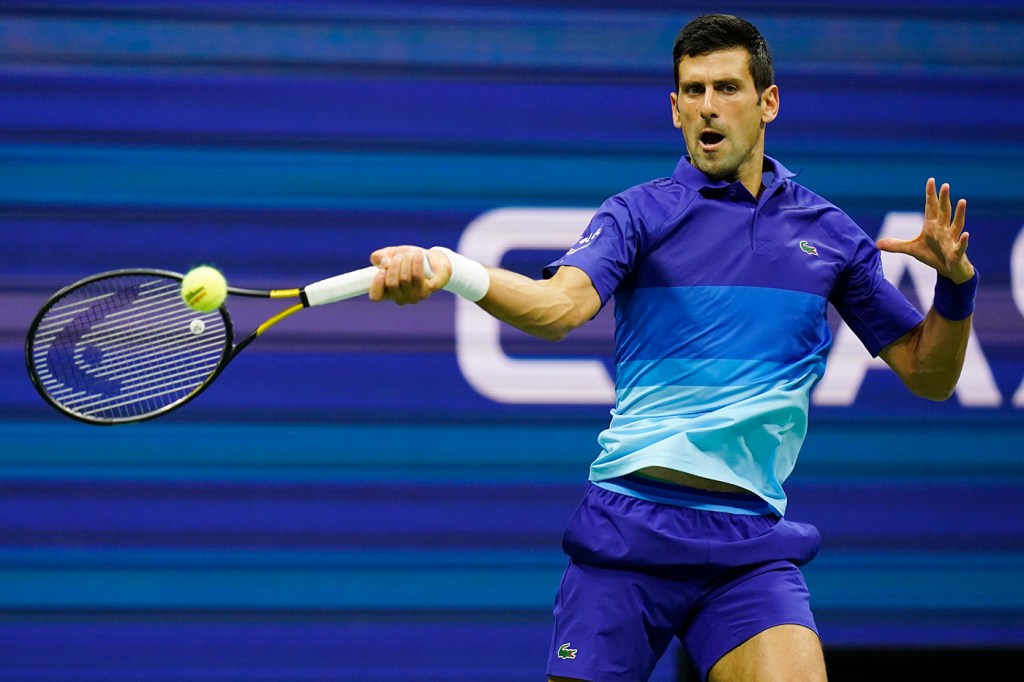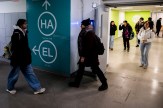Are athletes’ immune systems better equipped to fight COVID-19?

Since the start of the pandemic, public health experts have made it abundantly clear: In order to vanquish the virus, all who are vaccine-eligible need to get the shot一even the seemingly healthiest among us.
Which is why a number of athletes across different sports have been making headlines for refusing the vaccine and pushing back against mandates and other COVID-19 protocols. Some players have justified their decisions by emphasizing that vaccination is a personal choice, but others, such as tennis star Stefanos Tsitsipas, have stated that they simply “don’t see any reason” to get it.

Left, Dinesh John, Assistant Professor in the Health Sciences Department. Courtesy photo. Right, Mansoor Amiji University Distinguished Professor of Pharmaceutical Sciences. Photo by Matthew Modoono/Northeastern University
The young tennis star, who is currently ranked third in the world, added that he believes the vaccine “hasn’t been tested enough” despite extensive clinical trials, and his father一who also coaches Tsitsipas一tried justifying the decision by saying that athletes have “strong enough immune systems” to cope with “any challenge” posed by the infection.
So, is it true that athletes are better equipped to fight infections like COVID-19 and, therefore, don’t need to get vaccinated? Not so, says Mansoor Amiji, Northeastern University Distinguished Professor in the departments of pharmaceutical sciences and chemical engineering.
“It’s a false narrative,” Amiji says. “There is some old literature on this idea that athletes have stronger immunity, but anyone who exercises would have stronger immunity also.”
And while it is well-documented that regular exercise helps strengthen the immune system, Amiji says the exact “threshold of protection” needed to ward off infection is “highly personalized and highly variable.”
In other words, every person is different, and having a stronger immune system doesn’t preclude the possibility of becoming infected with COVID-19 or developing symptomatic infection. The real determinant in how well a person who gets infected with COVID-19 fares is whether that person has any comorbidities, or underlying health conditions that could increase the likelihood of severe illness, Amiji says.
“Some athletes have comorbidities, which would put them at risk,” Amiji says.
In some situations, prolonged vigorous exercise can temporarily suppress a person’s immune system by over-stressing the body, which may actually increase the chances of that person becoming infected with the virus, Amiji says.
“If you’re in a crowded gym, for example, the probability (of transmission) is higher during that time period,” he says.
It’s referred to as the “open window” hypothesis. While the idea has been contested in the scientific community for some time, there is evidence to suggest that “high-intensity training,” the kind elite athletes engage in, can have an immunosuppressive effect that can last anywhere from a couple of hours to several days, says Dinesh John, an exercise physiologist and an associate professor in the Department of Health Sciences.
During that time, athletes may be more susceptible to different kinds of infection.
“Conversely, moderate-intensity training does not have this sort of effect,” John says. “But elite athletes are not engaging in that kind of activity.”
Athletes who refuse to take the vaccine are harming the overall vaccination effort, which is premised on protecting those around you as well, John says.
Infections spreading among athletes and sports teams continue to be an issue一one that’s highlighted the importance of vaccination in curbing the spread of the virus. The Boston Red Sox have reported at least eight infections among members of their traveling party this week. The Red Sox also have one of the lowest vaccination rates in the league, according to the Boston Globe.
As professional sports leagues in the U.S. and abroad debate the merits of vaccine mandates, athletes have continued to come under increased scrutiny for their stances on getting jabbed. The New England Patriots this week cut their starting quarterback, Cam Newton, after he missed practices due to what he said was a misunderstanding about COVID infection protocols. Newton declined to disclose his vaccine status, but has been tested daily since returning this week一and vaccinated players are exempt from daily testing, according to NFL rules.
At the end of the day, when athletes choose to get vaccinated, it sends a positive message to fans and to the broader public, Amiji says.
“They are role models, especially to a lot of young men,” Amiji says.
For media inquiries, please contact media@northeastern.edu.






